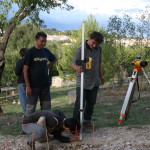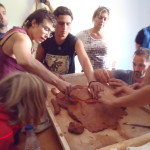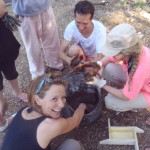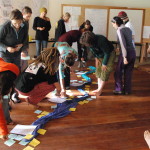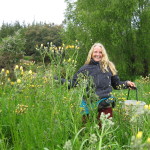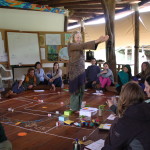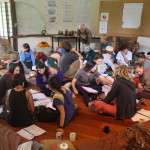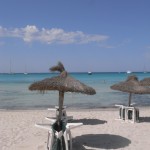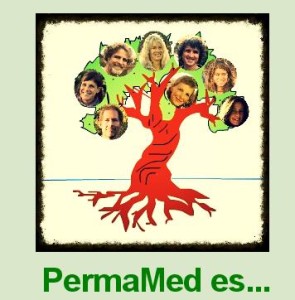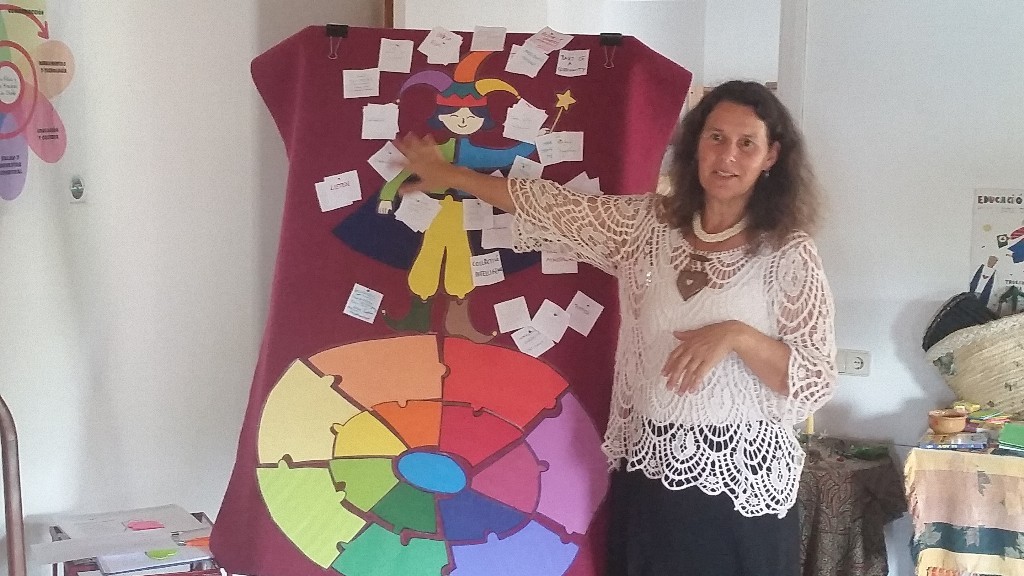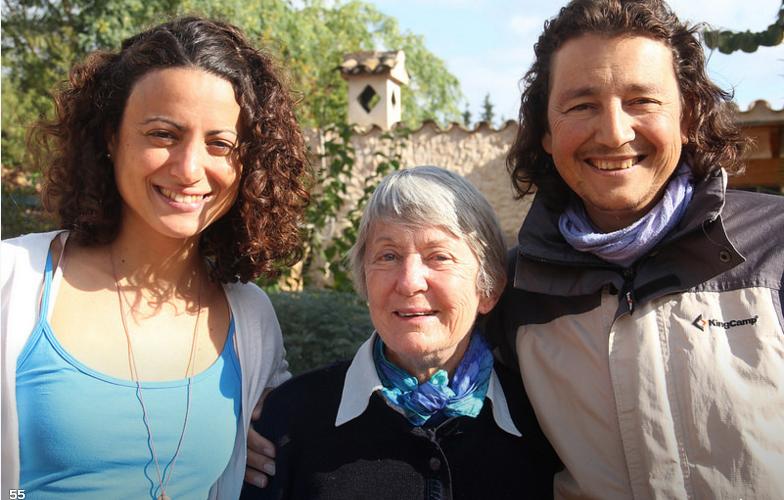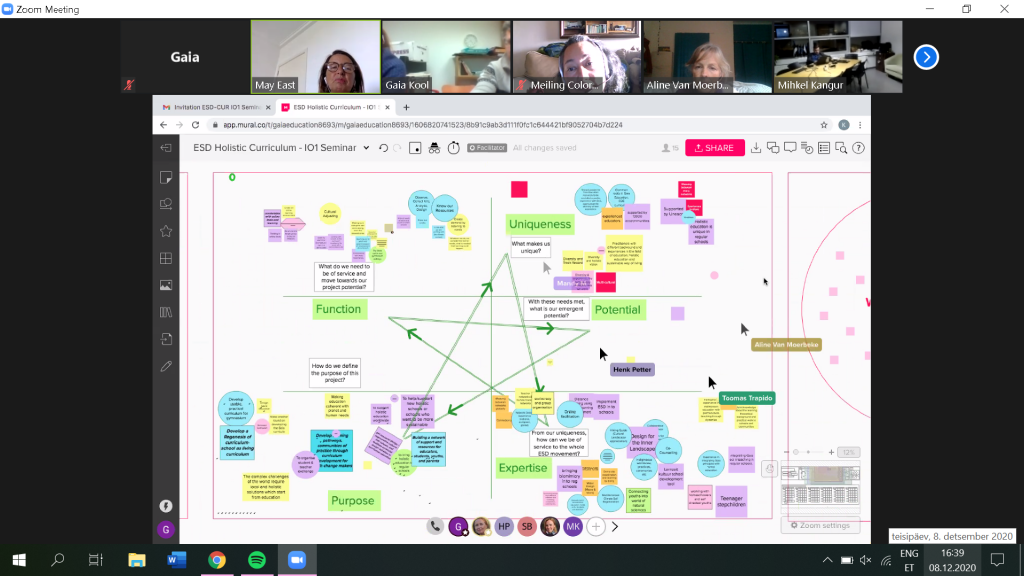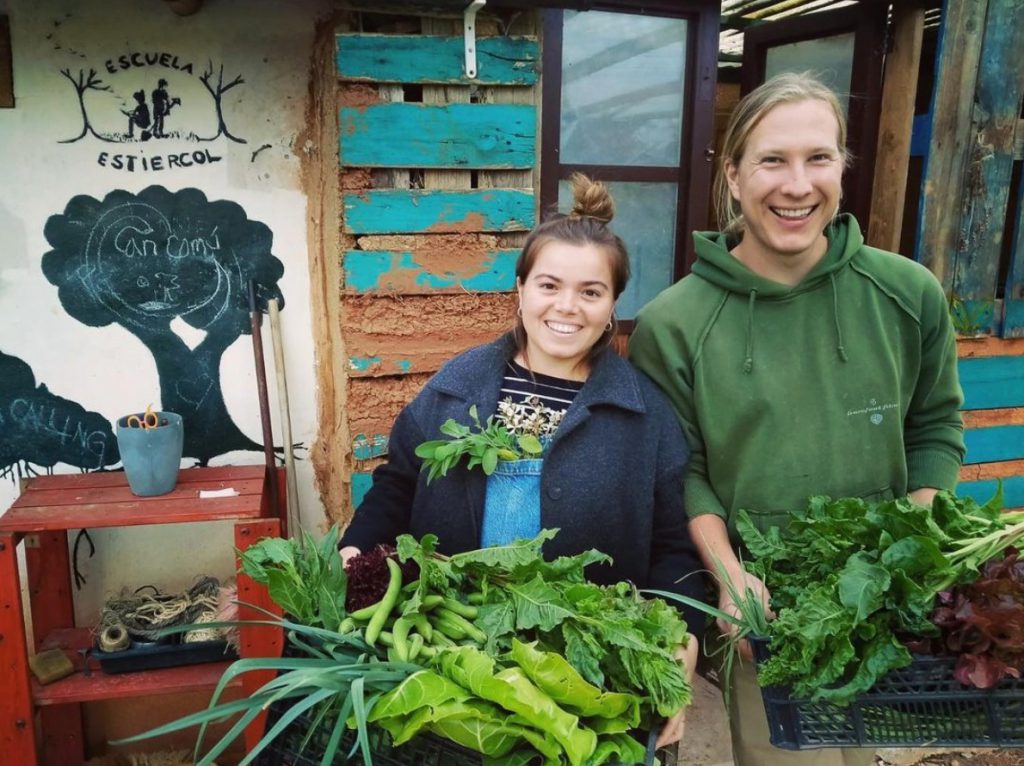PermaMed PDC 2015
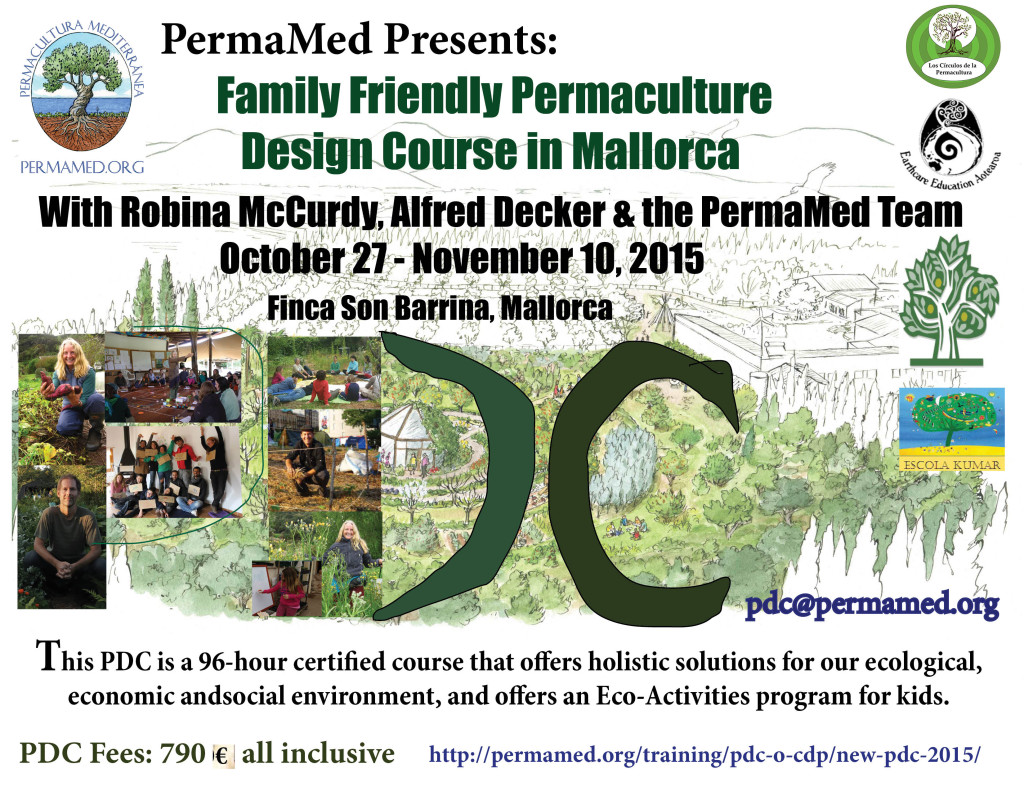
“Permaculture Design Course” with Robina McCurdy,
Alfred Decker & PermaMed
October 27 – November 10, 2015
Finca Son Barrina (Mallorca)
Questions/Contact: pdc@permamed.org
Join Robina McCurdy, Alfred Decker, and the Permacultura Mediterránea (PermaMed) team for a life-changing two week Permaculture Design Course (PDC) on Mallorca. The PDC is a 72-hour certified and holistic course encompassing a wide range of topics that demonstrate how to work with our ecological, economic and social environment.
Hosted at Finca Son Barrina, a lovely six hectare organic farm in the centre of the island, and the site of Mallorca’s first organic food shop, the PDC will be composed of lectures, discussions, practical activities, and design exercises. Participants will gain knowledge and skills to enable them to design and implement the principles of permaculture in the creation of truly sustainable systems that can enable us to live well and with respect for each other and the earth.
PermaMed is proud to host guest teacher Robina McCurdy, one of the most-respected and active permaculturalists working on an international level (see bio below).
What is permaculture?
Permaculture offers practical skills and methods for designing and creating regenerative living systems, integrating human needs with the ecosystems in which we are rooted. It is a theory of ecological design which seeks to develop sustainable human settlements and agricultural systems, by modeling them on the diversity, stability and resilience of natural ecosystems.
The term “permaculture” was originally coined to refer to the idea of a truly sustainable agriculture, but has expanded to embrace the idea of “permanent culture” in recognition that the social dimension is integral to truly sustainable living systems. It has been described as “a philosophy of working with, rather than against nature; of protracted and thoughtful observation rather than protracted and thoughtless labour; and of looking at plants and animals in all their functions, rather than treating any area or thing in isolation.”
Permaculture draws from several disciplines including organic farming, agro-forestry, sustainable development, and applied ecology. The design principles which are the conceptual foundation of permaculture are derived from the science of systems ecology and study of pre-industrial examples of sustainable land use. The primary agenda of the movement has been to assist people to become more self reliant through the design and development of productive and sustainable gardens and farms. It applies equally well to both rural and urban areas. Permaculture has even been described as “a revolution disguised as gardening.”
Back in the 70’s, two Australians, Bill Mollison and David Holmgren started a journey that we are still on today. Ancient knowledge and skills, traditional wisdom about plants, animals, and social systems provided the foundation for their contemporary approach. Applying systems thinking plus a diversity of experiences in natural world to this active research, they effectively created a methodology of design for how to build a stable and resilient culture, and called it “permaculture”, underpinned by a set of three ethics, and by principles which are transmitted in various ways and interwoven throughout the ethics:
EARTH CARE: Provision for all life systems to continue and multiply.
PEOPLE CARE: Provision for people to access those resources necessary for their existence.
FAIR SHARE: By governing our own needs, we can set aside resources to further the above ethics.
Permaculture ethics offer a direction to responsibilities, moral values and livelihood. They provide the vision on which design approaches and strategies can be tested.
Would you benefit from a Permaculture Design Course?
People from widely diverse backgrounds and interests have experienced and transformed their land since the first PDC was offered in 1972. Farmers, ranchers, landowners, foresters, landscape designers, architects, builders, planners, developers, accountants, financiers, bankers, publishers, attorneys, aid workers, educators, environmentalists and high school students have all brought permaculture techniques into their homes, businesses and communities.
What are the learning outcomes? Participants will learn:
- approaches to design including: mapping; designing from patterns to details; analysis of elements; using slope & orientation; and analysing the needs and yields of systems.
- how to increase productivity using intensive garden design strategies including: stacking, soil-building, mulch, nutrient cycling, pest control, green manures, worms, compost & companion planting.
- how to survey landscapes for property design using simple and sophisticated tools; mapping and map making; and site analysis and assessment.
- how to create and enhance micro-climates, and create design strategies for all major global climatic zones.
- how trees and forests regulate and moderate ecosystems; how to sustainably use, propagate, harvest and manage tree systems using techniques such as grafting, shelter belts, orchards, guild planting and succession planning.
- how to save money on energy bills with efficient home design, retrofitting, and renewable energy systems.
- multiple uses for greywater; constructed wetland design; and other techniques for treating “waste water”.
- passive water hydration and infiltration, rainwater collection, storage and composting toilets.
- using reconstructive earthworks, water harvesting and soil conditioning to recharge ground water, re-hydrate and drought-proof the landscape.
- how to bring fertility back to the land and build topsoil through a diversity of ancient and modern techniques.
- how to cycle nutrients and incorporate animals into your system using innovative techniques such as chicken tractors, pannage systems, pigeon lofts, dairy systems and beekeeping.
- creating living ecosystems that feed and nurture us and future generations. Design through the use of nature’s rules to create a lush and resilient natural environment.
- how to design solar-heated buildings (including cold-climate greenhouses). The use of natural building materials, energy efficient house placement and design and the assurance of a healthy indoor environment.
- strategies for creating community-wide sustainability, village development, alternative economies, local currencies, and how to organize community groups.
During the two week course (two six day segments with a day off in the middle to go to a beautiful beach), you will be supported in making an individual design (it could be farm, an apartment, a city block, or a community), as well as participate in a group design. This course is for you if you want to gain practical analytical skills and perspectives for living sustainable and productively.
Beyond the PDC:
The PDC serves as the foundation for further permaculture work and study, and is a prerequisite for the Diploma in Permaculture Design. Credit for this course is now accepted by a growing number of universities around the world.
Thousands of permaculture designers worldwide have been certified through this course and now comprise a global network of educators and ecological activists who regenerate degraded landscapes, create new businesses and communities, influence government and corporate policy, and change the way we view and re-design our environments.
What the PDC is not:
The PDC is a course about how to design, for the most part it is not a hands-on course where you garden, build, create ponds, make compost, etc…although there will be some of that :-). Permaculture is a holistic system that needs to be understood in its entirety, after which you will be ready to go out and do as much practical work as you like! This means that while we will touch on the above topics, and will do some hands-on experiential learning, our focus is to provide you with foundational knowledge so you can then create designs which are integrated, appropriate, and darn clever.
Family-friendly
We’d like to offer an exclusive option for parents who couldn’t take this PDC if they weren’t able to bring their children along. In this case we will offer activities for a limited number of children based on the educational philosophy of “educación viva”, an active accompaniment with an attitude of listening, love, and interest in the children’s needs. However we’d like to stress that this offer only exists for parents who really need to take up this option in order to be able to take part in the PDC.
How will the children be accompanied during the PDC?
The adult companions will propose activities and workshops and the children can choose how they will study the subjects that their parents will also be studying that day. There will be a fun activity with children and adults together at some point during each day.
Our Goals
- Create a space and opportunity for families to learn together.
- Demonstrate permaculture and its principles through experimentation and play. Accompany individual and collective learning processes.
- Share and have fun.
Spaces and Limits
There will be dedicated spaces for the children, both inside and outside. Although we will cater for the safety and well-being of the kids, please be aware that Finca Som Terra is a farm with animals and other common farm hazards.
Price to be confirmed. Contact eco-kids@permamed.org for more information.
PDC Dates
Begins: Wednesday, October 28, 2015 (Arrivals Tuesday, October 27th)
Free day: Tuesday, November 3rd
Ends: Certificate ceremony on the night of November 9th, followed by optional Party and “No Talent Show”, and optional breakfast the following morning
PDC Fees: 790€
Your fees include:
- A two week life-changing learning experience
- Camping facilities with showers, etc. Feel free to bring your own camping equipment and pitch your tent in field near the forest gardens. If you would prefer to stay in a bed, there is the possibility to stay in dorm rooms at the farm for €10/night; or in a 6m canvas bell tent that fits up to 10 people also for €10/night; or in a room for two people with a private sink for €15/person
- A FREE recent back issue of Permaculture and 30% OFF all books published by Permanent Publications and 10% OFF other books, DVDs, tools and products from www.green-shopping.co.uk
- Delicious and nutritious organic food: buffet-style breakfast, lunch and dinner, and morning and afternoon tea breaks (hot drinks, cold water and a bite to eat…herbal teas are included in the price, coffee and caffeinated teas which we have to import to the island are by donation))
- Permaculture Design Certificate
- A contribution towards partial scholarships for several local Mallorcan youths taking the course
Optional: Trip to a gorgeous Mediterranean beach with turquoise waters on the day off in the middle of the course (or you can stay and relax at the farm)
Participant numbers are limited—register early to ensure your place
Register now!
Books, preparation and reading
The Permaculture Design Certificate Course is a dynamic learning experience—concentration and learning can be quite intense. We strongly recommend that you come well prepared by learning and reading as much as you can about Permaculture before coming to the course. Recommended reading: Rosemary’s Earth User’s Guide to Permaculture. Other resources (mostly in Spanish) can be found here on our website.
Bring basic plan and photos of the land/place you want to work on designing during the PDC.
Venue
At Finca Son Barrina, PermaMed is developing an innovative project called The Permaculture Circles, a forest garden designed by Julio Cantos Gazquez, one of the most experienced, respected and well-known permaculturalists in Spain. The form of the circles comes from the permaculture design practice of zoning, in which different human activities are represented symbolically in concentric circles. Son Barrina aims to provide a base for experimentation of sustainable human activities. The overall project is based on the development of a large multilayered agroforestry system known as a food forest where educational courses, workshops, and tours are made. There is a nice swimming pool as well 
The course sessions will take place outside when there is good weather.
Note on camping: October and November in Mallorca can be lovely and warm but be prepared for possible autumn rain showers. Finca Son Barrina lies in a rural area so campers will be surrounded by farm noises as well as possible sound of hunting gunshots in the mornings as it will be bird hunting season in Mallorca. The sounds are more subtle inside the buildings 
Course Convener: Permacultura Mediterránea (PermaMed)
PermaMed is a Mallorca-based association that collaborates with a growing community to meet our needs by working with nature, learning and demonstrating how to build a truly sustainable society.
Our activities aim to inform, educate, encourage and support people in redefining their basic everyday needs and getting actively involved in the production process in order to cover these needs, based on their own knowledge and their own resources, becoming less dependent on the goods and services of the global market.
We work in network with other organisations and individuals around issues that apply to permaculture: agriculture, architecture, economics, health, renewable energy, ecology, and education. Aside from The Permaculture Circles, PermaMed has two other demonstration sites in development: Escola Kumar, and Finca Som Terra. Each site has its own focus and characteristics: Som Terra is devoted to regenerative agriculture using animals (cows and pigs) and tourism, Escola Kumar to small scale gardening, and social and urban permaculture.
Guest Teacher
Robina McCurdy
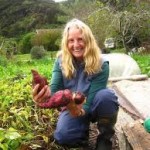 Coming from Aotearoa-New Zealand, Robina is a dynamic, participatory-style, outcomes-based educator. Over the past 30 years she has worked nationally and globally as a Permaculture educator/designer, organic growing tutor, documentary producer and community development facilitator. Robina is the founder of Tui Land Trust (www.tuitrust.org.nz), SEED (www.seed.org.za), Institute of Earthcare Education Aotearoa (www.earthcare-education.org), and currently, The Localising Food Project (www.localisingfood.com).
Coming from Aotearoa-New Zealand, Robina is a dynamic, participatory-style, outcomes-based educator. Over the past 30 years she has worked nationally and globally as a Permaculture educator/designer, organic growing tutor, documentary producer and community development facilitator. Robina is the founder of Tui Land Trust (www.tuitrust.org.nz), SEED (www.seed.org.za), Institute of Earthcare Education Aotearoa (www.earthcare-education.org), and currently, The Localising Food Project (www.localisingfood.com).
She has published range of educational materials which offer tools for developing sustainable communities with a practical grounding in permaculture, with participatory processes for collective decision-making and action. The ‘Localising Food Facilitators Manual’ and ‘Grounding Vision, Empowering Culture’ are guidebooks for community development facilitators. Robina has taught and applied her powerful community-building methods with households, neighborhoods, schools, farms, ecovillages & bioregions, in Aotearoa/New Zealand, Australia, Southern Africa, Great Britain, Brazil & North America. She has taught twenty PDCs, five permaculture teacher training courses, and hundreds of hands-on permaculture workshops. In recent years she worked as the designer/co-ordinator of the Victory Community Health Gardens (Nelson) and a sustainability consultant in post-earthquake Christchurch, with ‘Project Lyttelton’s ‘Harbour Basin Food Resilience’ project. Re-connection with nature, creating harmonic living environments, mobilising communities for dynamic resilience and empowering people as agents of positive change, underpins all of Robina’s work.
Robina will be with us for the first week of the PDC.
Lead facilitator
Alfred Decker
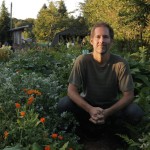 Lead facilitator Alfred Decker’s passion in life has been ecological and social justice activism, of which permaculture has played a central part. “I love the natural world, and working with nature through permaculture has helped to ground and sustain me.” Since his first PDC in 1998 in California, Alfred has been involved with social movements and projects throughout Europe and the Americas. He is the founder of Permacultura Barcelona and the Forest Gardens project at Can Masdeu, is a member of the Permaculture Council of Europeand participated in the European Permaculture Teachers Partnership, and recently completed a post graduate diploma in sustainable architecture and renewable energy (Centre for Alternative Technology, Wales). After taking a permaculture teachers training with Rosemary Morrow in 2011, he undertook a two year mentorship and later co-taught five courses with Rosemary, ultimately earning a diploma in Permaculture Education & Community Development in 2013 through her organisation Blue Mountains Permaculture Institute in Australia. He also co-edited her forthcoming manual “Permaculture Teaching Matters” and organized a successful crowdfunding campaign to create a digital platform for her life’s work in teaching. Alfred has taught widely throughout Europe, and in 2014 left his beloved Barcelona in order to move to Mallorca and collaborate with PermaMed.
Lead facilitator Alfred Decker’s passion in life has been ecological and social justice activism, of which permaculture has played a central part. “I love the natural world, and working with nature through permaculture has helped to ground and sustain me.” Since his first PDC in 1998 in California, Alfred has been involved with social movements and projects throughout Europe and the Americas. He is the founder of Permacultura Barcelona and the Forest Gardens project at Can Masdeu, is a member of the Permaculture Council of Europeand participated in the European Permaculture Teachers Partnership, and recently completed a post graduate diploma in sustainable architecture and renewable energy (Centre for Alternative Technology, Wales). After taking a permaculture teachers training with Rosemary Morrow in 2011, he undertook a two year mentorship and later co-taught five courses with Rosemary, ultimately earning a diploma in Permaculture Education & Community Development in 2013 through her organisation Blue Mountains Permaculture Institute in Australia. He also co-edited her forthcoming manual “Permaculture Teaching Matters” and organized a successful crowdfunding campaign to create a digital platform for her life’s work in teaching. Alfred has taught widely throughout Europe, and in 2014 left his beloved Barcelona in order to move to Mallorca and collaborate with PermaMed.
PermaMed Teaching Team
The PermaMed team includes people with diverse skills and expertise who are committed to sustainable and regenerative design:
- Julio Cantos Gázquez is one of the Mediterranean’s foremost experts on forest gardens and ecological forestry, as well as a widely-respected permaculture teacher, practitioner, and diploma holder. He is coordinator of the The Permaculture Circles project at PermaMed Son Barrina; the Spanish representative instructor of theInternational Analog Forestry Network; and the co-founder of PermaMed.
- Mandy Merklein, is a biologist, environmentalist, and Certified Permaculture Designer, (PDC with Darren Doherty), dedicated to supporting our transition to a more conscious, holistic, and resilient life. Her focus is in cultivating ecological subsistence gardens, homesteads, and communities. Mandy’s thesis in 1982 was on overcoming peak oil/resources and creating transition pathways to sustainable communities. She has worked as an ecologist, conservationist and program manager for over 30 years on four continents. Mandy has over 25 years of practical community gardening experience. She is a co-founder of PermaMed and Ecology and Community Resources with her husband Bruce Robson (also a biologist and PDC/Doherty). She has coordinated previous PDC and Gaia EDE courses on Mallorca, where she lives as mother and householder, and manages, with her family, the Escola Kumar, a permaculture demonstration site and holistic living and education center.
- Anne Caroline Sulzer is a Certified Permaculture Designer and Graduate in Tourism and Hotel Management. She completed her PDC in 2012 in Australia at Southern Cross Permaculture. During her 1 year study journey through Australia, she has gained hands-on experience and learned from inspirational teachers. In addition to that, Caroline completed two Permaculture Teacher Trainings with Rosemary Morrow and Andy Goldring from the Permaculture Association UK. After having taken a Holistic Management course in 2013, she started to specialize in soil regeneration and Holistic Management. Caroline is the founder of Finca Som Terra and our host for the PDC.
- Aline Van Moerbeke, Certified Permaculture Designer (PDC 2011 with Richard Perkins and PDC 2012 with Julio Cantos), passionate about the diversity of cultures and new experiences to be lived on this planet, hence her choice of university studies: Sinology. Having left the Mallorcan real estate world, she is particularly interested in leadership for change and alternative economies, as well as applying Permaculture in a (semi) urban environment.
- RuMi Nicolau Ordinas, Certified Permaculture Designer, elementary school teacher with a degree in psychology. Active seeker of new ways of teaching and learning, pedagogical designer of workshops, educational programs, and permaculture teaching tools from a holistic, systemic, ecological and sustainable vision. Disciple of Robin Clayfield (specialist in dynamic group facilitation and community leadership. Active member of the PermaMed in communication and the management and organization of courses/events. She is passionate about the study and investigation of new forms of social, economic, ecological, and horizontal organization.
- Daniella Querol, Certified Permaculture Designer, studied Fine Arts in México and Germany and took three masters in documentary and experimental filming as well as photography for cinema in Germany and Barcelona. She dedicates herself to child development through “educación viva” and will be organising the children’s activities during the course.
Contact
For any questions about the course, please write to Connie and Alfred at pdc@permamed.org


